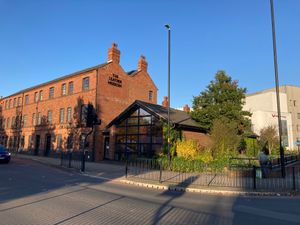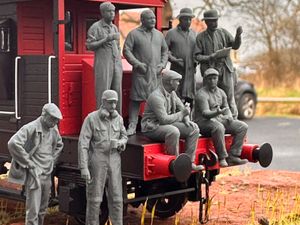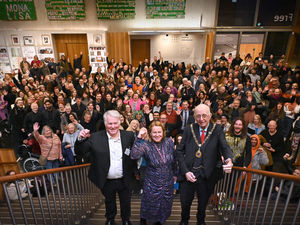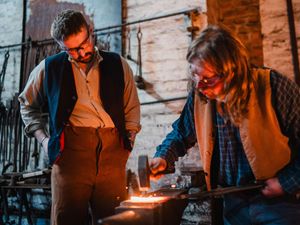Watch as Wightwick Manor gets new wallpaper – made the old, traditional way
Wightwick Manor and Gardens in Wolverhampton is celebrating renowned British artist and designer William Morris on what would have been his 190th birthday this weekend.
Watch more of our videos on ShotsTV.com
and on Freeview 262 or Freely 565
The National Trust manor house in Wolverhampton is unveiling a meticulous restoration project to preserve Morris' legacy.
Morris was a prominent figure in the British arts and crafts movement of the late 19th century and renowned as a textile designer, poet, novelist, translator, and socialist activist.
He also ran a renowned company Morris & Co which still hand-prints wallpaper from his original pearwood blocks at its factory in Loughborough.
Damage to the historic Morris wallpaper scheme at Wightwick led to conservation experts reverting to the traditional hand-printing processes with the affected sections at the house replaced with newly printed sheets created by traditional methods.
Playing a pivotal role in the project were Anstey Wallpaper Company and Morris & Co which has a factory in Loughborough, Leicestershire.
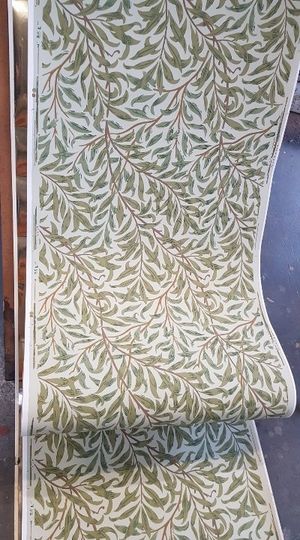
Master craftsmen undertook the skilled process of hand-printing the wallpaper by expertly layering the design using five separate blocks to capture every detail.
Morris & Co. produced a sample that precisely matched the original wallpaper, allowing for the commissioning of five rolls of bespoke 'Willow Bough' wallpaper especially for Wightwick Manor.
Specialist heritage decorator Rob Odell then meticulously protected the remaining wallpaper and hung the newly printed paper alongside it, completing the restoration project, in time for the anniversary of William Morris' birth.
Morris, who was born in London on March 24, 1834 was a leading proponent of the idea that art should be integrated into everyday life, advocating the revival of traditional craftsmanship and the creation of beautiful, functional objects.
He founded the company in 1861 and it produced exquisite textiles, wallpapers, and furnishings characterised by intricate patterns inspired by nature and medieval art – his work continues to influence design, literature, and social thought to this day.
Senior house and collections manager at Wightwick Manor Helen Bratt-Wyton said: “We are so fortunate that Morris & Co can still produce their iconic prints using the original printing blocks.
"The damage to the wallpaper at Wightwick was caused over time, by salts seeping through the plaster in the dining room lobby.
"Conservators, curators and building surveyors all worked on the solution which has involved the removal of the damaged plaster and replacing it with breathable lime plaster. This was then allowed to thoroughly dry for two years to prevent future damage.
"A few of the Wightwick team went to visit the factory to watch as the master craftsman carefully reproduced sheets of the ‘Willow Bough’ design as sympathetically as possible to the one we have in the manor.
"We are thrilled to celebrate William Morris's 190th birthday with the completion of this exciting restoration project. All of the specialist craftsmanship involved honours Morris's enduring legacy as a pioneer of the arts and crafts movement. It also ensures that future generations can continue to appreciate his timeless designs."

